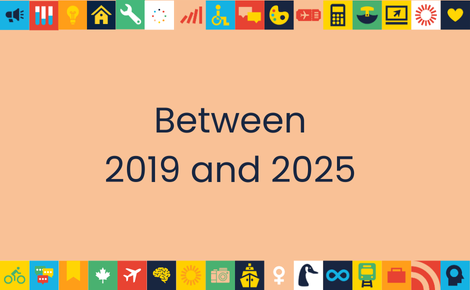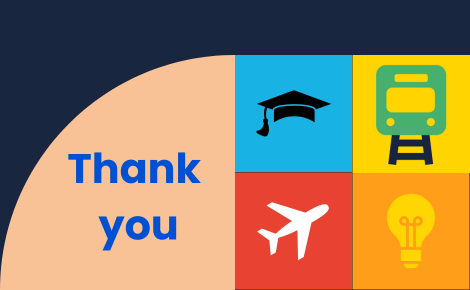One way to help people with disabilities succeed is to ensure they have the same access to international study and work opportunities as their peers
This op-ed was published in the Vancouver Sun March 27, 2022
Opinion piece by Rick Hansen, C.C., O.B.C., Founder, Rick Hansen Foundation
Brian McKeever is the inspiration we all need right now. At 42, he just participated in his sixth and final Paralympic Games, winning his last individual Paralympic race on March 12 in Beijing with the men’s visually impaired middle-distance cross-country event. It was the 20th podium appearance of his Paralympic career and his 16th gold.
McKeever is among Canada’s many outstanding Paralympic athletes who made their mark at the 2022 Winter Games in Beijing. Their achievements are a testament to what’s possible when barriers are removed and people with disabilities are supported to achieve their full potential — whether in sport, education or careers.
Unfortunately, in each area of life, obstacles remain for the more than 6 million Canadians with disabilities. Research shows that across Canada many people with disabilities — including those with post-secondary qualifications — find it difficult to enter the workforce or often struggle to find stable jobs in line with their capabilities.
Canada is missing out on all these capable, educated and motivated people have to offer, and as we build back from COVID and face current conflicts, Canada must take advantage of all its talent.
One way to help people with disabilities succeed in all aspects of life is to ensure they have the same access to international study and work opportunities as their peers.
In today’s rapidly changing and increasingly international labour market, employers are increasingly looking for hires with global experience, as they bring global awareness, intercultural skills and connections that help businesses and organizations thrive.
International study and work experiences are proven social mobilizers. According to a 2018 study, graduates from disadvantaged backgrounds who took part in such experiences earned, on average, 6.5 per cent more than those with no global experience.
But global study and work-integrated learning opportunities are also about personal development; they build character in ways that help shape our view of the world and our contributions to it. And now, at a time of growing global conflict, increasing cultural awareness, understanding and acceptance is vital to building a more peaceful, equitable and accessible world for all.
My own international experiences affected the course of my life and inspired me to want to make a difference. As a Paralympian wheelchair racer in the 1980s, I traveled the world. Exposure to other cultures gave me greater perspective and understanding of the challenges and stigma faced by people with disabilities around the globe, and led me to do the Man In Motion World Tour.
Recognizing how Canada needs more globally-minded and culturally aware citizens, Canada’s colleges and universities are increasingly offering global programming to students — either in-person, or through virtual programs. Regrettably, most Canadian students are not able to take advantage of these exciting study-abroad opportunities.
Pre-pandemic, only 11 per cent of Canadian undergraduates and three per cent of college students participated in an international mobility experience over the course of their studies, despite the clear benefits to both personal growth and career success.
Although there is little data about the participation rates of students with disabilities in international study and work, we know the figure is even lower.
But I am hopeful about the future.
I’m encouraged by the federal government’s ambitious new national outbound student mobility pilot program, Global Skills Opportunity. Through financial and logistical support, it aims to enable more than 16,000 post-secondary students gain international experiences over the next four years — especially Indigenous students, students from low-income backgrounds and students with disabilities.
Even with COVID throwing a wrench in global travel plans, progress is already being made. With funding from the program, participating universities and colleges have learned more about the needs of students with disabilities and are addressing obstacles to their participation in international opportunities.
They are working with international partner institutions to ensure that students’ accessibility needs will be met when they arrive overseas, meaning even more students with disabilities will benefit from life-changing, character-building and career-advancing opportunities.
We’ve seen how increased attention, funding and support for Canadian Paralympians over the past few decades have paved the way for even more athletes with disabilities to pull on their skis or pick up their sticks in the pursuit of excellence — and inspired others to achieve their own potential in sport and other areas.
Imagine what Canada’s bright and motivated disabled post-secondary students will achieve when they have equal access to valuable global skills — and how they will inspire others to pull out their passports, strengthen their resumes and achieve their full potential.




